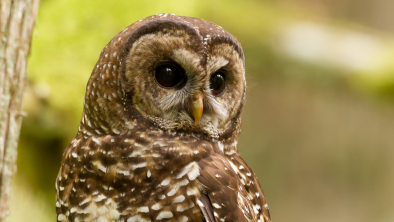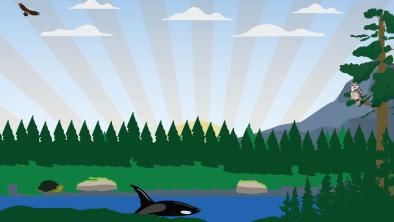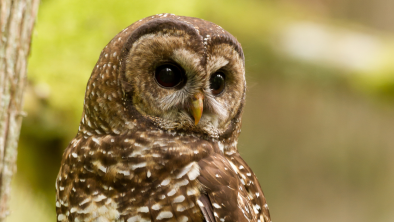Political Interference Endangers Vancouver Island Marmot
For Immediate Release:
No Critical Habitat identified for Olympic mascot Mukmuk
Vancouver, British Columbia – Confidential BC government documents recently released to the Wilderness Committee and Ecojustice reveal political interference in the overdue Recovery Strategy for the Vancouver Island marmot – one of the worlds most endangered mammals. Despite the fact that the marmot has been intensively studied, and its habitat has been mapped and identified, no critical habitat is identified in its draft Recovery Strategy.
The identification and protection of critical habitat, the area an endangered species needs to survive or recover, is essential for the recovery of species. This is especially important given that over 80 percent of species at risk in Canada are at risk because of the loss and fragmentation of their habitat. Recovery strategies for species at risk are required under the Federal Species at Risk Act. BC is leading the development of numerous recovery strategies for provincially at-risk wildlife. Recovery strategies are legally required to identify critical habitat to the extent possible.
The lack of critical habitat identification is a hallmark of recovery strategies spearheaded by the BC Government. Last year an internal memo released to the Wilderness Committee and Ecojustice revealed the provincial government explicitly instructed recovery teams to not map critical habitat. Maps are key to identifying the location of critical habitat and thus essential to its eventual protection.
The newly released confidential government documents regarding the Vancouver Island marmot, which include emails between BC government bureaucrats and recovery team members, contain concerning comments including:
- "The Government stripped out identification of critical habitat. Things keep changing."
- "It is not clear from the text why currently occupied habitat couldnt be identified . . . "
- "I must say I am rather disappointed with the state of the recovery strategy at this stage. Especially for such a high profile species with so much money invested in it. . . This document is likely to get a lot of public scrutiny, and it is already overdue."
"We have a big problem," said Gwen Barlee, policy director with the Wilderness Committee. "The BC government has a written policy which is preventing the identification and mapping of critical habitat in recovery strategies even when there is enough scientific knowledge to do so. They dont want to identify and protect critical habitat because they dont want to step on the toes of industry – that is shameful."
Susan Pinkus, staff scientist with Ecojustice, commented, "Years of research have shown the location of habitat necessary for the Vancouver Island marmot to survive and recover. I think Canadians have a right to know why the BC government is obstructing the identification and protection of this species critical habitat."
The Vancouver Island marmot is one of the most critically endangered mammals in the world, with less than 100 marmots living in the wild on Vancouver Island. Some marmot habitat is found in protected areas but most is found on land owned by private industry including TimberWest. The photogenic marmot, nicknamed Mukmuk, is the cyber mascot for the 2010 Winter Olympics.
-30-
For more information please contact:
Gwen Barlee, Wilderness Committee, 604-683-8220 (w) or 604-202-0322 (c)
Susan Pinkus, Ecojustice, 604-537-6407 (c)


